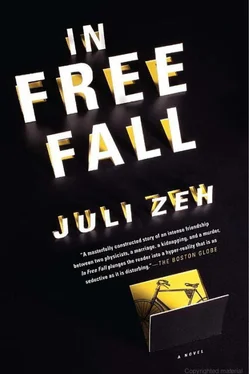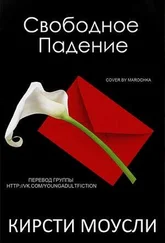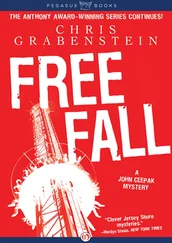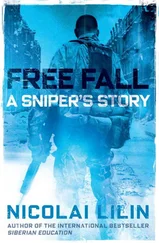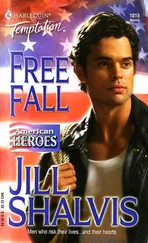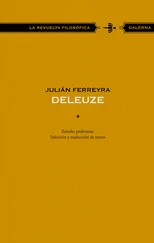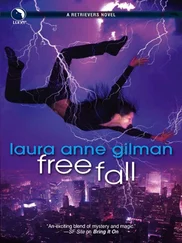“That’s a terrible shame.”
Sebastian turns away and presses his lips together.
“This way or that,” Oskar says, “it will pass. After that, you’ll be a new person. Not a better person, but still there.”
His unfiltered cigarette has burned down to a stub in the ashtray. Oskar flinches as he burns his finger trying to put it out.
“Do tell me why you came to Geneva tonight,” Oskar says.
“To tell you that we won’t be seeing each other anymore.”
The man who looks up at Sebastian as he rises from the table no longer looks like himself. His face has no greatness, no beauty, and no aristocratic air. It is suddenly so helpless that the changing expressions on it look like blueprints. The sketch of a smile, a diagram of mockery, a draft of exhaustion. The anatomy of sadness.
“Do me a favor,” Sebastian says. “Stay there and don’t watch me as I leave.”
The pheasant has opened its eyes and is gazing into emptiness. Glasses clatter behind the bar. Outside, the night is waiting. The streets of the city are filled with mist. It smells of rain.
THE DRUMS HAVE BEEN CALLING TO HIM for an hour now, sounding the beat to which he should march. He knows they are right, that it is time to finally make a move. Nonetheless he hesitates as if he still has something important to do, something to verify and to understand. Then a scream, piercing like a battle cry.
The digital display of the alarm clock shows a four and two zeros. The detective often wakes exactly on the hour. There is no end to the scream, which turns out to be the cry of a baby in the apartment next door. The drumming, on the other hand, is coming from the rain falling against the window with the relentlessness of a machine. Schilf swings his legs out of the bed. He feels more rested than he has for a long time, and is startled to find that the day is far from beginning. He presses the light switch to no effect and walks over to the balcony door. Drops of water are racing across the glass in horizontal lines, as if the building were traveling through the night at speed. Outside there is a darkness that has no place in a city. The streetlights are not working, and only the yellow glow of a blinking warning light illuminates the hell outside. There is a tree lying in the road, and another has fallen on top of three parked cars. The storm tugs at the branches, still dissatisfied with its vanquished opponents. Schilf enjoys watching chaos that, for once, has not been created by human beings.
Shivering, he turns away and sits down at the desk. He finds a stack of postcards in the drawer. By the flame of a lighter, he writes on the back of the first one: “Dear Julia, When you come to visit, bring this card with you as evidence that you exist. Urgent [in capital letters with three clumsy-looking exclamation points]. Schilf.”
He burns his thumb on the lighter and lowers his head over his second card: “Dear Maike, Whatever happens, you must not stop believing. You have no right to destroy Sebastian. Please [a splotch of ink where he strikes out three exclamation points]. Yours, Detective Schilf.”
Content with his work, he addresses the first card to his own apartment in Stuttgart and the second to the Gallery of Modern Art. As a precaution, he takes the last two pills that the doctor prescribed him for headaches, then sits down on the sofa with the chess computer.
He has paid too little attention to his king from the start. He has watched pale-faced but unwavering as his major pieces died heroes’ deaths. A large proportion of foot soldiers have also fallen victim to Schilf’s fanaticism. He is sending his last pawns, rook, and knight to lay siege to the opposing king, who is barricaded behind a standard defense, bored and probably smoking one cigarette after another. Schilf pictures him with his shirt half open, holding a pistol in his limp fingers. If the detective were to grant his opponent a pause for breath, if he doesn’t force it to move to save its king, he is finished. Even as he brings up the game, he is filled with rage against the superior enemy force, against its solid formation and distribution of pieces, which are always in the right place at the right time. The computer catches every one of his attacks in a net of calculations. Schilf is fighting against a determinist, an ultramaterialist who with precise knowledge of a situation and the laws that apply can determine past and future, and whose most important ability consists of predicting the moment and the manner in which everything that wishes to live will die.
The detective decides to beat the computer using its own weapons. He lifts his feet up onto the sofa and sets to work calculating every possible move and countermove.
By the time it grows light, he has not shifted one centimeter from his position. His deliberations are now being accompanied by the whine of an electric saw, which is biting into solid wood on the street below. The rain machine has shifted down a gear or two, and glaring light that leaves no shadow makes everything in the room look washed-out. At about eight o’clock the detective stretches his legs and massages his neck. He has not made a single move. But he now has a vague idea of where the next attack against his opponent should be made.
Out on the street, he walks over a carpet of wet sawdust. It smells like a circus ring. He steps over branches that have been torn off in the storm, and drops the two postcards in a mailbox on his way to the streetcar stop. Onboard, strangers are telling each other about the damage done in their neighborhoods. Their eyes are shining with the happiness that is only ever brought about by a natural catastrophe representing the comeback of a half-forgotten god.
Schilf gets off the streetcar near the Institute of Physics and takes a detour along Sophie-de-la-Roche-Strasse. The peaceful canal has been transformed overnight into a muddy torrent filled with leaves and plastic bottles. Bonnie and Clyde are nowhere to be seen. Schilf manages to duck behind a parked car just as Sebastian appears from around the corner. Sebastian’s arms are wrapped tightly around his body. He does not have a jacket, a bag, or an umbrella. He looks like a man who has spent half the night on the autobahn and then slept two hours on the swivel chair in his office at the institute.
So you’ve come back to us, the detective thought , the detective thinks.
With difficulty he suppresses the impulse to follow Sebastian.
NOT LONG AFTER, he is standing in front of the locked glass door of the natural sciences library looking at the posted opening times. It is a while before he realizes that it’s the weekend, so he will have to wait another hour. Resigned, he follows his own wet footsteps back through the Gustav Mie building and goes to the cafeteria, which is empty but open. He calls out in a loud voice for a double espresso before he sits down at one of the freshly wiped tables. He puts his mobile phone down and places his hands on either side of it. Barely five minutes pass before it rings.
“Miserable criminal!”
Schilf is happy to hear that Rita Skura avoids repeating herself when she dishes out insults. It is good to hear her voice.
“I have you to thank for the most ridiculous Sunday morning of my life,” she says.
She sounds relieved. Schilf wedges his phone between his shoulder and his cheek.
“Good morning,” he says. “Lovely weather, isn’t it?”
“Of course I had to lie,” Rita says, undeterred. “Sooner or later I could have brought in the murderer by other means.”
“Of course,” Schilf says. “Sooner—or later.”
Rita’s snort makes the diaphragm of the speaker vibrate.
“Do you know the chief public prosecutor?” she shouts. “Have you tried dictating terms to a guy like that?”
Читать дальше
